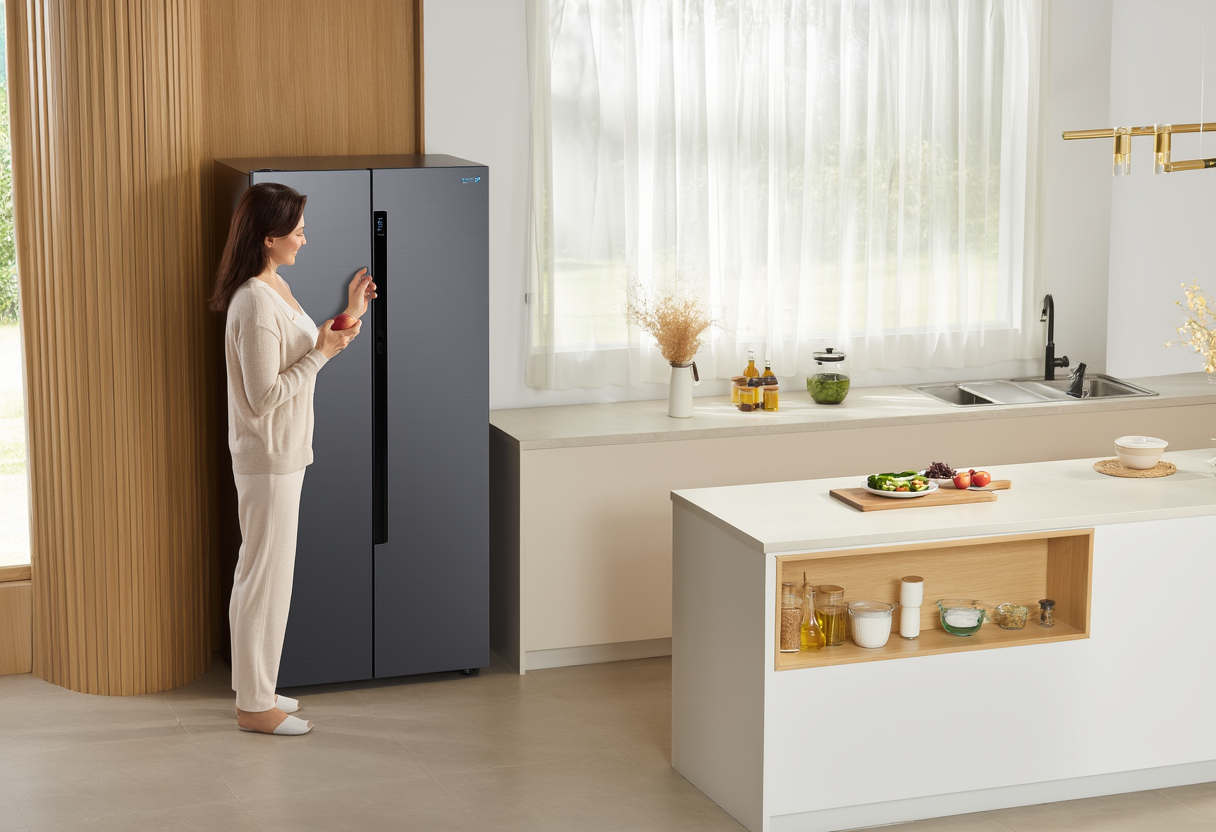Revolutionizing Kitchens: The Rise of Smart Refrigerators
Smart refrigerators are no longer a concept of the future; they are an essential part of modern kitchens. These innovative appliances not only keep our food fresh but also integrate advanced technologies that help boost convenience and sustainability. With features such as voice control, remote monitoring, and food management systems, they redefine our relationship with kitchen appliances. As we explore their capabilities, it's clear that smart refrigerators are more than just fridges—they're smart companions in our culinary journeys.
Understanding Smart Refrigerators in Today’s Kitchen
Smart refrigerators represent a groundbreaking advancement in kitchen technology. They function not just as food storage units, but rather as intelligent systems that keep track of inventory, suggest recipes, and even help manage grocery lists. With the integration of Wi-Fi and app control, users can monitor their refrigerator's contents from anywhere, ensuring that groceries are never forgotten and food doesn't go to waste. _Smart refrigerators_ leverage sensors and cameras to offer real-time updates, paving the way for a more organized and efficient kitchen experience. Additionally, these appliances are designed with energy-saving features that could significantly reduce electricity costs, appealing to environmentally conscious consumers. As these devices evolve, they steadily shift the paradigm of how we approach food storage and kitchen management, further underscoring the central role they play in modern households.
Innovative Features of Smart Refrigerators
The array of features available in smart refrigerators makes them distinct in contemporary kitchens. From touch screens that allow users to display recipes or notes to internal cameras that provide a visual inventory, the capabilities are remarkably diverse. Many _smart refrigerators_ come equipped with voice-assist technology, enabling hands-free operation for multitasking cooks. The ability to connect with other smart home devices is another crucial aspect, as it allows for a seamless integration into the wider smart home ecosystem. Some models even include specialized compartments for specific types of food, optimizing conditions for freshness and longevity. Furthermore, the connectivity to mobile apps enhances user engagement, making it possible for individuals to engage with their kitchen inventory on a deeper level than ever before. These features not only streamline daily cooking tasks but also facilitate healthier eating habits by minimizing food wastage—an increasingly important consideration in today's sustainability-focused society.
The Impact of Smart Refrigerators on Meal Planning
Smart refrigerators dramatically transform meal planning, making it more efficient and fun. With built-in features like meal suggestions based on what is available inside, these devices can help users avoid impulse purchases and ensure that meals are planned around fresh ingredients before they expire. The smart inventory system also aids consumers in tracking expiration dates, thus preventing food waste—a growing concern among environmentally aware individuals. Additionally, the ability to generate shopping lists directly from the fridge’s inventory means that users can streamline grocery shopping, saving time and effort in a busy lifestyle. The influence of _smart refrigerators_ extends beyond individual households, creating a ripple effect that promotes sustainability on a broader scale. As technology advances, we can expect integrations that further enhance community meal planning efforts, reinforcing healthy eating habits within families and communities.
Challenges and Considerations of Adopting Smart Refrigerators
While the advantages of smart refrigerators are significant, there are also challenges that consumers must consider. The initial investment cost can be a deterrent for many, as smart refrigerators tend to be pricier than traditional models. Additionally, the dependence on connectivity introduces concerns about cybersecurity and personal data privacy. Users must navigate these complexities while benefiting from enhanced convenience. Furthermore, ensuring that appliances are regularly updated with the latest software is crucial for maintaining security and functionality, placing a responsibility on users. For those who may not be tech-savvy, this learning curve can present additional barriers. However, as manufacturers address these concerns by providing better customer support and educational resources, the transition to _smart refrigerators_ becomes increasingly manageable. Balancing cost versus long-term utility remains a critical consideration in the decision-making process for prospective buyers.
The Future of Smart Refrigerators
Looking ahead, the future of smart refrigerators is promising and exciting. Innovations in AI are expected to create even more responsive and intuitive systems that adapt to user habits and preferences. As smart kitchens evolve, inter-device communication will likely enhance collaborative functionalities among kitchen appliances. Picture a scenario where your _smart refrigerator_ synergizes with your oven to suggest optimal cooking times based on food types and quantities. Sustainability will play a key role in design and functionality; energy-efficient models are likely to become standard as consumer demand for eco-friendly options increases. Further, the integration of health tracking features could open avenues for personalized dietary recommendations based on stored food items. As we move forward, it is clear that smart refrigerators will not only change how we store food but also how we embrace culinary lifestyles holistically, making them indispensable in modern society.
Conclusion: Embracing the Smart Refrigerator Revolution
Smart refrigerators are transforming kitchens into intelligent spaces that go far beyond traditional cooking and food storage. By embracing these innovative appliances, consumers are not just investing in a kitchen tool; they are stepping into a new era of convenience, sustainability, and health consciousness. As the technology continues to improve and the affordability increases, it's anticipated that smart refrigerators will become accessible to a wider audience. Adopting a _smart refrigerator_ can significantly influence lifestyle choices, promoting better food management and encouraging environmentally friendly practices. Ultimately, the adoption of smart refrigerators signifies a larger trend toward automation and intelligence in our everyday lives, leading to kitchens that are not only smarter but also more engaging and efficient.
